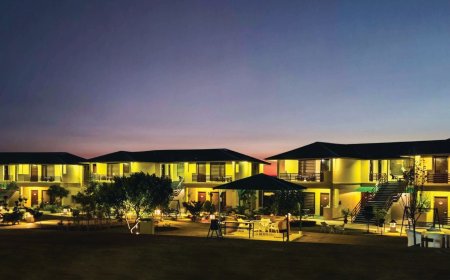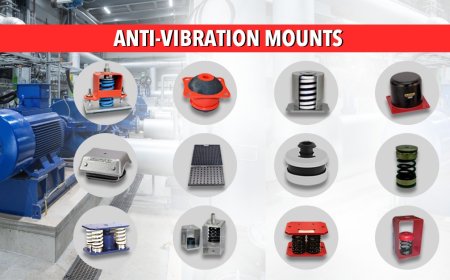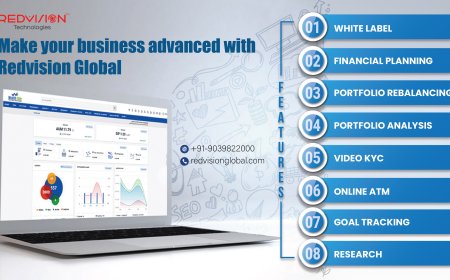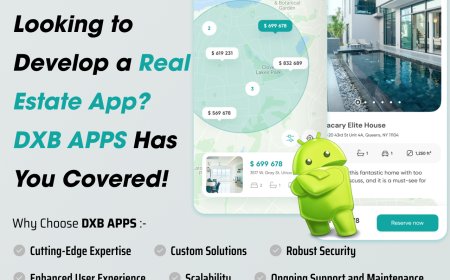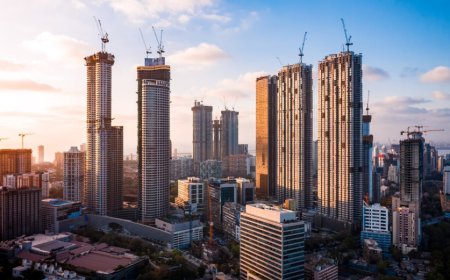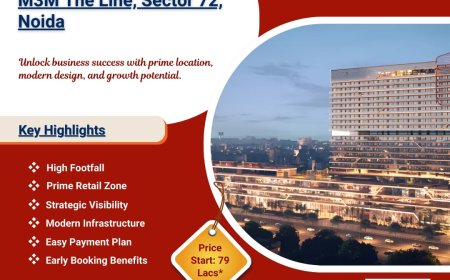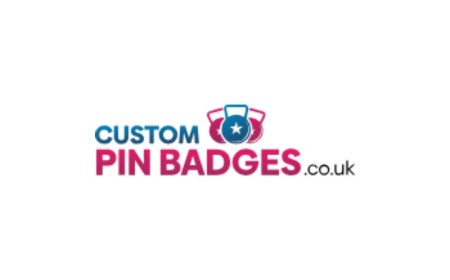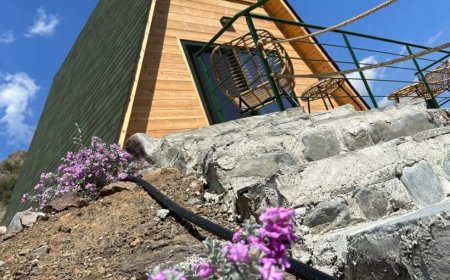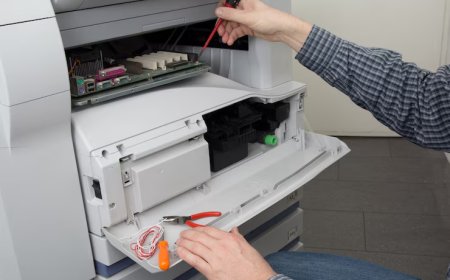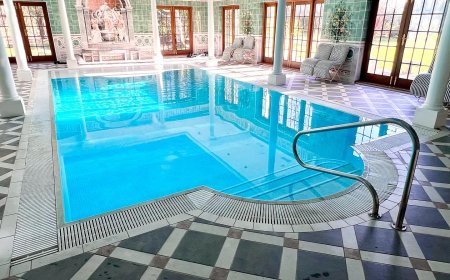How to Freelance from Columbus Washington Coffee Shops
How to Freelance from Columbus Washington Coffee Shops Freelancing has transformed the way professionals work—offering flexibility, autonomy, and the freedom to design a lifestyle around work, not the other way around. For many, the ideal workspace isn’t a sterile home office or a corporate cubicle, but a vibrant, ambient coffee shop where the aroma of freshly ground beans fuels creativity and the
How to Freelance from Columbus Washington Coffee Shops
Freelancing has transformed the way professionals work—offering flexibility, autonomy, and the freedom to design a lifestyle around work, not the other way around. For many, the ideal workspace isn’t a sterile home office or a corporate cubicle, but a vibrant, ambient coffee shop where the aroma of freshly ground beans fuels creativity and the gentle hum of conversation provides just enough background stimulation to stay focused. In Columbus, Washington, a quiet yet growing community nestled along the Columbia River, coffee shops have become unexpected hubs for remote freelancers seeking productivity, community, and inspiration.
This guide is not about freelancing in general. It’s about freelancing specifically in Columbus, Washington—its coffee shops, its rhythm, its hidden advantages, and how to thrive there as a digital nomad, writer, designer, developer, or consultant. Whether you’re new to freelancing or looking to relocate your workflow from a crowded city to a calmer, more affordable locale, this tutorial will walk you through every practical step, best practice, tool, and real-world example you need to succeed.
By the end of this guide, you’ll know exactly which Columbus coffee shops are best for focused work, how to optimize your daily routine around them, what tools to use for seamless operations, and how to build a sustainable freelance career in one of Washington’s most underrated towns.
Step-by-Step Guide
Step 1: Understand Columbus, Washington’s Unique Environment
Columbus, Washington, is a small town with a population of just over 1,000 residents. It’s not a bustling metropolis like Seattle or Portland, but that’s precisely its strength. The pace is slower, the cost of living is lower, and the sense of community is stronger. There are no high-rise coworking spaces or corporate tech campuses here—just local coffee shops, river views, and a growing number of remote workers who’ve chosen this town for its peace and affordability.
Before you set up your laptop at a table, understand the rhythm of the town. Most coffee shops open between 6:30 a.m. and 7:30 a.m. and close between 5:00 p.m. and 7:00 p.m. Weekends are quieter, especially Sundays, making them ideal for deep work. Weekdays between 9:00 a.m. and 3:00 p.m. are the sweet spot—enough foot traffic to feel alive, but not so crowded that finding a seat becomes a challenge.
Step 2: Identify the Best Coffee Shops for Freelancing
Not all coffee shops are created equal for freelancers. You need reliable Wi-Fi, ample power outlets, comfortable seating, and a culture that welcomes remote workers. Here are the top three coffee shops in Columbus, Washington, that meet these criteria:
- The Riverside Roast – Located on Main Street, this is the most popular spot for freelancers. Free Wi-Fi, multiple outlets per table, large windows with river views, and a quiet back corner that’s rarely occupied. They offer a “Freelancer’s Hour” from 10–11 a.m. with free refills and a 10% discount on snacks.
- Grounds & Grind – A cozy, slightly rustic shop with wooden tables and soft lighting. Wi-Fi is strong and password-protected (ask at the counter). They have a dedicated “Work Nook” with a desk and chair near the window. Ideal for creative work like writing or design.
- Bean & Bloom – A newer addition to town, this shop doubles as a plant nursery. The air is fresh, the lighting is natural, and the staff are incredibly accommodating to long-term visitors. They allow you to stay for up to four hours without purchasing additional items—uncommon in many coffee shops.
Pro tip: Avoid the coffee shop during the 7:30–8:30 a.m. rush hour when locals come in for their morning pick-me-up. Arrive between 8:30 and 9:30 a.m. for the best chance at a prime table.
Step 3: Set Up Your Mobile Workstation
Your workstation doesn’t need to be fancy, but it must be functional. Here’s what you need:
- A lightweight laptop (MacBook Air or Dell XPS 13 recommended)
- A compact, foldable laptop stand for better ergonomics
- A portable power bank (10,000mAh minimum)
- Wireless earbuds with noise-canceling (AirPods Pro or Sony WF-1000XM5)
- A small, collapsible cup holder for your coffee
- A microfiber cloth to wipe condensation from your laptop screen
Bring a small tote bag to carry everything. Avoid bulky backpacks—they take up too much space at communal tables. A crossbody bag or a slim messenger bag works best.
Step 4: Establish a Daily Routine
Structure is the secret weapon of successful freelancers working outside the home. Without a routine, time slips away, distractions multiply, and productivity plummets. Here’s a sample daily schedule optimized for Columbus coffee shop freelancing:
- 6:30 a.m. – Wake up, hydrate, light stretching
- 7:00 a.m. – Walk to your chosen coffee shop (10–15 minutes)
- 7:30 a.m. – Order your coffee and secure your table
- 8:00–10:00 a.m. – Deep work block (no emails, no social media)
- 10:00–10:15 a.m. – Break: walk around the block, stretch, refill coffee
- 10:15 a.m.–12:00 p.m. – Second deep work block
- 12:00–1:00 p.m. – Lunch: grab a sandwich from the local deli or eat at the park
- 1:00–3:00 p.m. – Administrative work: invoicing, client communication, scheduling
- 3:00–4:00 p.m. – Creative block: brainstorming, learning, content creation
- 4:00–5:00 p.m. – Wind down: review day, plan tomorrow, pack up
This routine ensures you’re working during peak productivity hours while respecting the coffee shop’s environment. It also gives you downtime to recharge without burning out.
Step 5: Manage Your Time and Tasks Efficiently
Time management is critical when your workspace changes daily. Use digital tools to stay on track:
- Time Blocking – Allocate specific hours for specific tasks. Use Google Calendar to color-code blocks: blue for deep work, green for meetings, red for admin.
- Pomodoro Technique – Work for 25 minutes, break for 5. Use a timer app like Focus To-Do or TomatoTimer.
- Task Prioritization – Use the Eisenhower Matrix: Urgent/Important, Not Urgent/Important, Urgent/Not Important, Not Urgent/Not Important. Focus only on the first two categories.
At the end of each day, spend 10 minutes reviewing what you accomplished and what needs to carry over. This builds momentum and prevents overwhelm.
Step 6: Build Relationships with Staff and Regulars
Columbus is a tight-knit community. The baristas at Riverside Roast know your name after two weeks. The owner of Grounds & Grind remembers you prefer oat milk and a double shot. These small connections matter.
When you build rapport:
- You’re more likely to get a reserved table during busy hours
- Staff may quietly turn up the Wi-Fi signal for you
- You’ll be invited to local networking events or meetups
- You’ll feel less isolated as a freelancer
Simple gestures go a long way: say hello, leave a kind note, tip generously, and ask about their day. Be a regular, not just a customer.
Step 7: Secure Your Digital Presence
Working from a public space means your data is exposed. Protect yourself:
- Always use a Virtual Private Network (VPN) like NordVPN or ProtonVPN
- Enable two-factor authentication on all accounts
- Never save passwords on your browser
- Use encrypted messaging apps like Signal for client communication
- Keep your operating system and software updated
Also, avoid logging into sensitive accounts (banking, client portals) while connected to public Wi-Fi unless you’re on a secure, encrypted connection.
Step 8: Handle Taxes and Legal Requirements
As a freelancer in Washington State, you’re responsible for your own taxes. Here’s what you need to know:
- Washington has no state income tax, but you still owe federal income tax and self-employment tax (15.3% for Social Security and Medicare)
- Track all business expenses: coffee, laptop accessories, software subscriptions, internet
- Use a separate business bank account (Chime or Novo are great for freelancers)
- File estimated quarterly taxes using IRS Form 1040-ES
- Consider forming an LLC for liability protection (costs $180 in Washington)
Keep receipts digitally using apps like Expensify or QuickBooks Self-Employed. They auto-categorize expenses and generate reports for tax season.
Step 9: Market Yourself Locally and Beyond
Just because you’re in a small town doesn’t mean your client base has to be. Use your location as a brand asset:
- Create a website or portfolio that mentions “Based in Columbus, WA – Remote Freelancer Serving Clients Nationwide”
- Write blog posts about “The Secret to Productivity in Small-Town Coffee Shops”
- Join LinkedIn groups for remote workers and share your experience
- Offer a “Columbus Coffee Shop Workday” virtual tour as a lead magnet
Many clients are drawn to freelancers with unique backstories. Your location isn’t a limitation—it’s a differentiator.
Step 10: Plan for Weather and Seasonal Changes
Columbus experiences four distinct seasons. Winters are damp and cool; summers are mild but can be hazy from regional wildfires. Plan accordingly:
- Winter: Bring a warm jacket, hand warmers, and a thermal mug
- Summer: Pack a sun hat, sunglasses, and a portable fan
- Spring/Fall: Always carry a light rain jacket—drizzle is common
- Have a backup plan: If Wi-Fi is spotty or the shop is too noisy, work from your home office or a quiet library branch
Library branches in nearby towns like Washougal or Camas offer free Wi-Fi, quiet study rooms, and AC—perfect for extreme weather days.
Best Practices
Respect the Space
Coffee shops are not 24/7 coworking spaces. They’re businesses trying to serve customers who want to linger, chat, or read a book. Follow these etiquette rules:
- Don’t occupy a table for more than 4–5 hours without purchasing additional items
- Keep your belongings minimal—don’t spread out papers, laptops, and bags across three chairs
- Keep conversations quiet or use headphones
- Don’t plug into every outlet; leave some for others
- Wipe down your table after you leave
Respect breeds goodwill. And goodwill means you’ll always have a seat.
Balance Social Interaction with Focus
One of the biggest mistakes freelancers make is thinking that ambient noise equals productivity. It doesn’t. Background chatter can be distracting, especially for deep work like coding or writing.
Use noise-canceling headphones to block out conversation. Play ambient sounds like rainfall, café noise, or lo-fi beats to create a consistent auditory environment. Apps like Noisli or Brain.fm offer scientifically designed soundscapes for focus.
Also, avoid engaging in long conversations with other patrons. You’re there to work, not to socialize. A smile and a nod are enough.
Track Your Energy Levels, Not Just Hours
Not every day will be productive. Some days your brain is sluggish; other days, you’re on fire. Don’t force output. Instead, track your energy patterns.
Use a simple journal or app like Daylio to log:
- Energy level (1–10)
- Focus level (1–10)
- What you worked on
- What coffee shop you used
After two weeks, you’ll notice patterns. Maybe you’re most focused at 9 a.m. at Riverside Roast. Or maybe you do better creative work in the afternoon at Bean & Bloom. Adapt your schedule accordingly.
Set Clear Boundaries with Clients
When clients ask, “Where are you working today?” don’t say, “At a coffee shop.” Instead, say:
“I work remotely from a quiet, professional environment in Columbus, WA. I’m available for calls between 9 a.m. and 5 p.m. Pacific Time, with a 24-hour response window for emails.”
This sets expectations and reinforces professionalism. It also subtly signals that you’re not working from your couch in pajamas.
Invest in Ergonomics
Sitting at a coffee shop table for hours can cause back pain, neck strain, and wrist fatigue. Use these tips:
- Elevate your laptop to eye level using a stand or stack of books
- Use an external keyboard and mouse if you’re working more than 90 minutes
- Take a 2-minute stretch break every 30 minutes
- Use a lumbar roll or rolled-up jacket for lower back support
Your body will thank you when you’re freelancing for years to come.
Build a Personal Brand Around Your Location
Don’t hide the fact that you work from Columbus. Embrace it. Create content around it:
- Instagram Reels showing your morning routine at Riverside Roast
- YouTube vlogs titled “A Day in the Life of a Freelancer in Rural Washington”
- A Substack newsletter: “The Columbus Coffee Log: Lessons from a Small-Town Freelancer”
People are drawn to authenticity. Your unique location becomes part of your brand story—and that’s invaluable in a crowded freelance market.
Tools and Resources
Essential Digital Tools
- Notion – All-in-one workspace for notes, tasks, databases, and client portals
- Calendly – Let clients book meetings automatically without back-and-forth emails
- Upwork / Fiverr – Platforms to find initial clients (use them as launchpads, not long-term homes)
- PayPal / Wise – For international payments and low-fee transfers
- Grammarly – Essential for writers, editors, and content creators
- Canva – For quick graphics, social media posts, and client presentations
- Google Workspace – Gmail, Docs, Drive, Calendar—all synced and cloud-based
Hardware Recommendations
- Laptop: MacBook Air M2 (best battery life) or Lenovo ThinkPad E14 (best keyboard)
- Headphones: Sony WH-1000XM5 (best noise cancellation)
- Portable charger: Anker PowerCore 10000 (compact and reliable)
- Wi-Fi extender: TP-Link TL-WA850RE (if your coffee shop’s signal is weak—ask permission before using)
- Mini tripod: Joby GorillaPod (for recording videos or livestreams)
Local Resources in Columbus
- Columbus Public Library – Free high-speed Wi-Fi, quiet study rooms, printing services
- Chamber of Commerce – Offers networking events for small business owners and remote workers
- Washington State Business License Service – Online portal to register your business
- Clark County Small Business Development Center – Free consulting for freelancers and solopreneurs
Learning Resources
- FreeCodeCamp.org – Learn to code for free
- HubSpot Academy – Free certifications in marketing, sales, and CRM
- Coursera – Freelancing Specialization by University of London – Covers contracts, pricing, client management
- YouTube Channels: “The Futur,” “Ali Abdaal,” “YouTubers vs. Freelancers”
Real Examples
Example 1: Maya Rodriguez, Freelance Graphic Designer
Maya moved from Seattle to Columbus after her rent doubled. She works as a freelance logo and branding designer for startups across the U.S. She uses Grounds & Grind as her primary workspace.
“I started posting photos of my design process at the café—my laptop open, coffee beside me, sketches on the table. People loved the authenticity. Within three months, I got three new clients just from Instagram. Now I charge 40% more than I did in Seattle because I’ve built a brand around being a ‘small-town designer with big-city skills.’”
Maya uses Notion to manage her projects and Calendly to book client calls. She also hosts monthly “Design Coffee Hours” at the shop—free 30-minute consultations for local small business owners. It’s become a networking goldmine.
Example 2: James Lin, Remote Software Developer
James works full-time for a tech company in Austin but is based in Columbus. He’s been freelancing on the side for open-source projects and local nonprofits.
“I needed quiet. Seattle was too loud. Columbus is quiet, but not boring. The coffee shop has the perfect vibe—enough energy to feel alive, but not enough to distract. I code for 4–5 hours a day here. I’ve built two apps in the last year because of it.”
James uses a VPN, a mechanical keyboard, and a laptop stand. He also writes a weekly blog post called “Code & Coffee in Columbus” that’s gained a small but loyal following.
Example 3: Priya Patel, Freelance Writer and Editor
Priya writes long-form articles for health and wellness brands. She works from Bean & Bloom because of the natural light and calming atmosphere.
“I write 1,500-word articles here every Tuesday. The plant-filled environment helps me think clearly. I’ve published over 60 pieces since moving here. My clients don’t care where I am—they care about the quality. And my quality has improved because I’m not stressed about rent or noise.”
Priya uses Grammarly and Hemingway App to edit her work. She also keeps a journal of quotes she hears from customers—many of them become article ideas.
FAQs
Can I work all day at a coffee shop in Columbus, Washington?
Yes, but with limits. Most coffee shops expect you to make purchases throughout the day. Don’t sit for 8 hours with one coffee. Buy a snack, refill your drink, or order lunch. This shows respect and ensures you’re welcome to return.
Is the Wi-Fi reliable in Columbus coffee shops?
Generally, yes. Riverside Roast and Bean & Bloom have strong, stable connections. Grounds & Grind is slightly slower but still sufficient for video calls and file uploads. If you need ultra-reliable internet, consider a mobile hotspot as backup.
Do I need a business license to freelance in Washington?
You don’t need one to start freelancing, but if you earn over $12,000/year or operate under a business name (e.g., “Maya Designs”), you must register with the Washington Secretary of State. It’s inexpensive and protects your brand.
Are there coworking spaces in Columbus?
No dedicated coworking spaces exist yet. That’s why coffee shops have become the de facto alternative. However, the Chamber of Commerce is exploring the idea of a “Remote Worker Hub” in 2025.
How do I meet other freelancers in Columbus?
Join the “Columbus Remote Workers” Facebook group. Attend the monthly “Small Business Mixer” at the library. Or simply strike up conversations at your favorite coffee shop. Many freelancers are quiet but eager to connect.
What if I need to take a client call?
Use headphones and find a quiet corner. If the shop is too noisy, step outside for a few minutes. Most clients won’t mind if you’re in a calm outdoor setting. You can even say, “I’m working from a quiet riverside spot today—it’s helping me focus.”
Can I bring a guest or coworker to the coffee shop?
Yes, but be mindful. If you’re bringing someone for a meeting, order extra drinks and food. Don’t monopolize space. Two people at one table is fine; four is pushing it.
Is Columbus safe for freelancers working alone?
Yes. Columbus is one of the safest towns in Clark County. Crime rates are extremely low. You can work alone at any time without concern. Just use common sense: don’t leave your laptop unattended.
How do I handle taxes as a freelancer in Washington?
Since Washington has no state income tax, you only pay federal taxes. Use QuickBooks Self-Employed to track income and expenses. Pay quarterly estimated taxes using IRS Form 1040-ES. Consult a CPA if you’re unsure.
What’s the biggest mistake freelancers make here?
Thinking they can work from home instead of a coffee shop. The isolation kills motivation. The structure, ambiance, and community of a coffee shop are what make freelancing sustainable in a small town.
Conclusion
Freelancing from Columbus, Washington, coffee shops isn’t just a trend—it’s a lifestyle choice that combines productivity, peace, and purpose. In a world where remote work is increasingly normalized, the real differentiator isn’t your skill set or your portfolio. It’s your environment. And Columbus offers something rare: a quiet, affordable, human-centered space where work doesn’t feel like a grind, but a rhythm.
This guide has shown you how to turn a simple cup of coffee into a foundation for a thriving freelance career. From choosing the right shop to mastering your routine, from protecting your data to building your brand, every step is designed to help you not just survive—but thrive.
You don’t need a Silicon Valley address to succeed. You don’t need a corner office or a fancy title. You just need a laptop, a reliable Wi-Fi connection, and the courage to show up—every day—at the same table, with the same coffee, in the same quiet town.
Columbus may be small on the map, but for the freelance professionals who choose to work here, it’s become a beacon of possibility. So go ahead. Order your latte. Open your laptop. And start building the life you’ve always wanted—one focused hour, one perfect cup, one quiet morning at a time.








